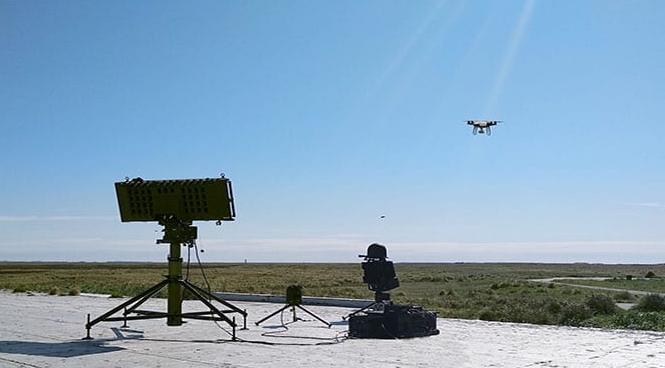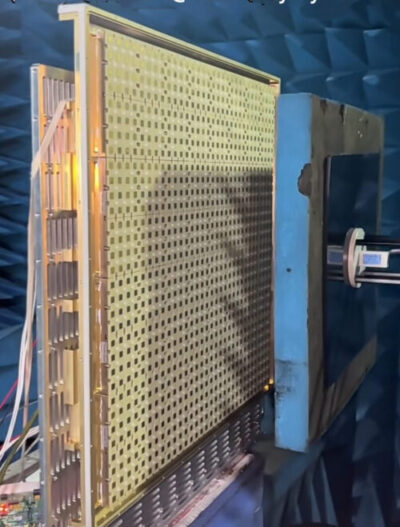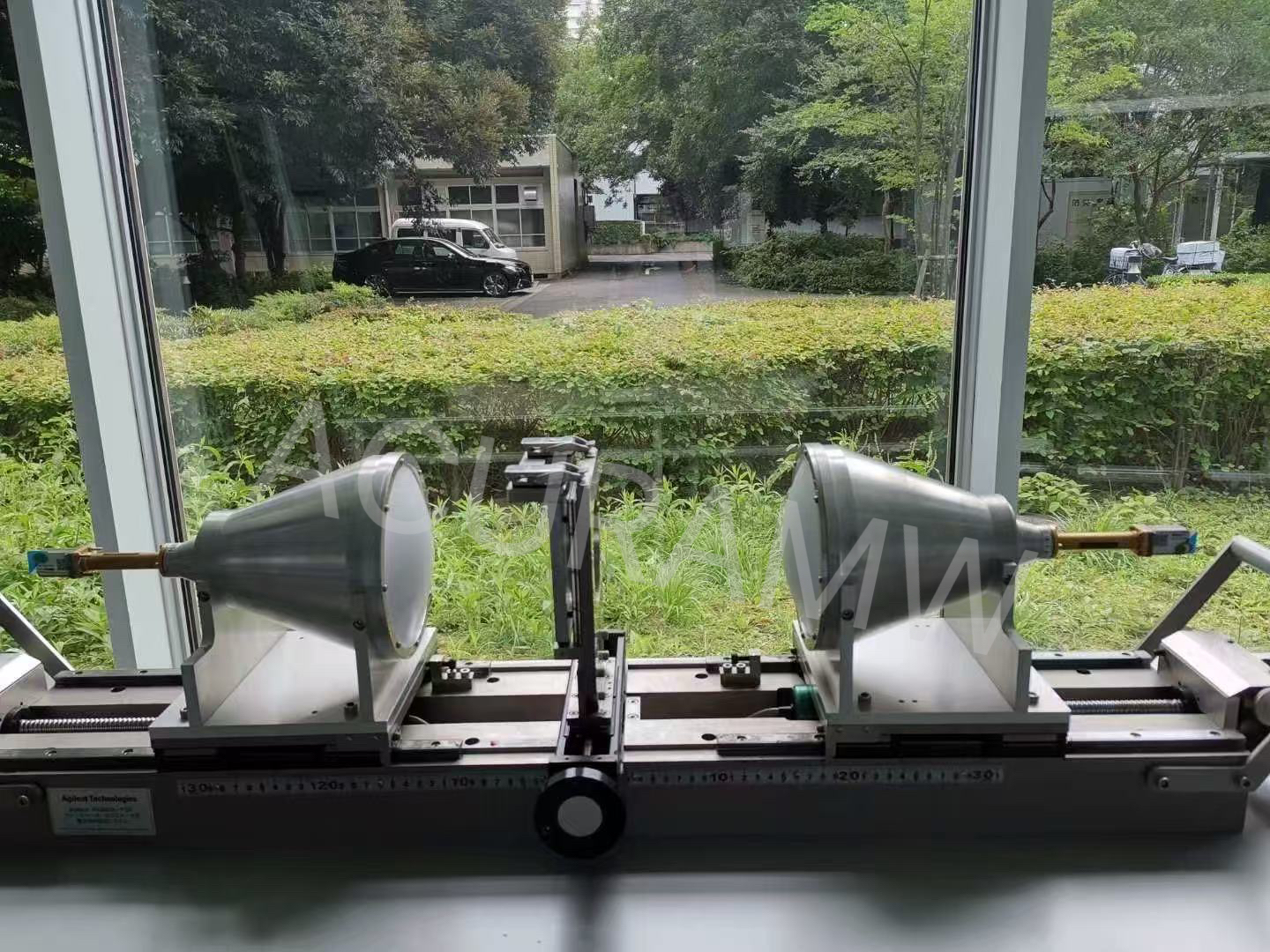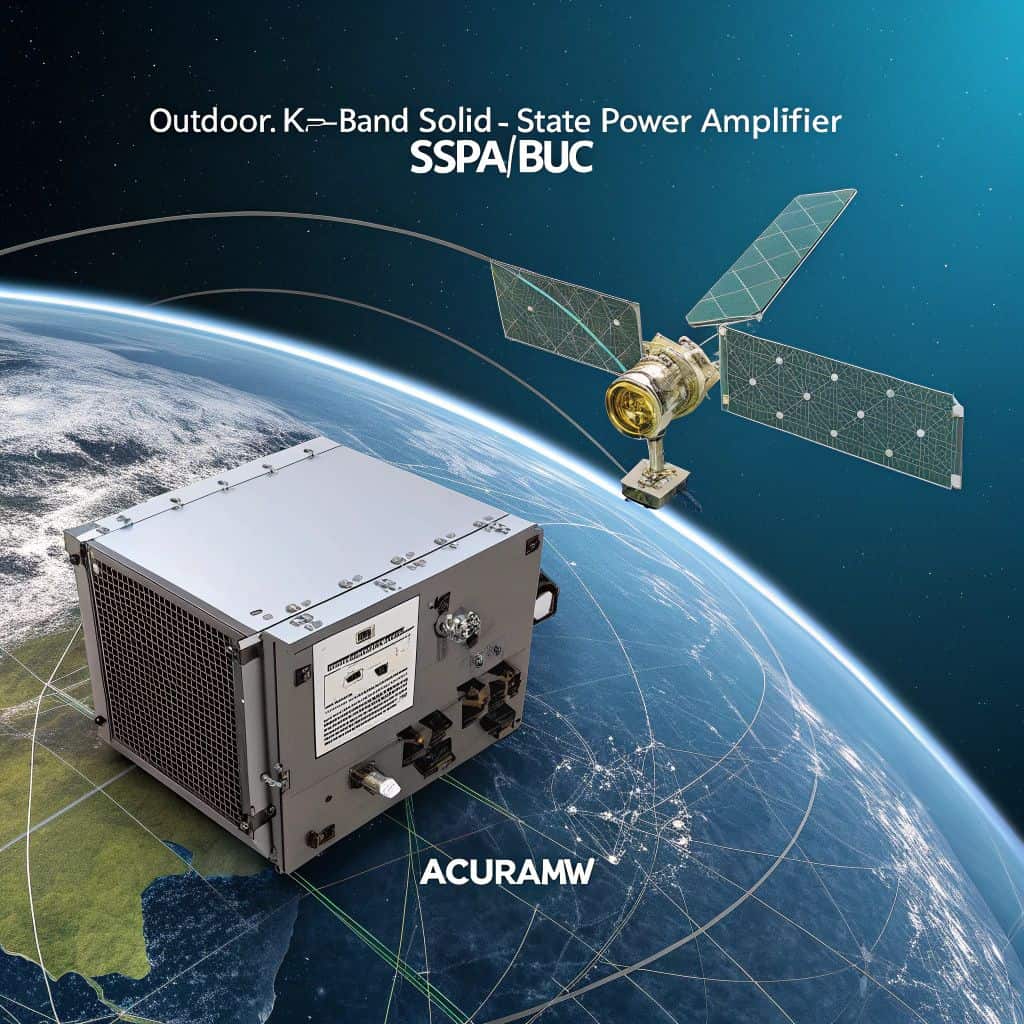Key Components of Anti-Drone Systems and the Role of Solid-State Power Amplifier
The Drone Guard system, developed by Israel Aerospace Industries (IAI) and its subsidiary ELTA Systems, is an advanced counter-drone system designed to detect, identify, and intercept drones and small UAVs. This system combines multiple technologies to address drone threats, integrating electro-optical sensors with 3D radar and jamming systems, providing comprehensive drone detection and defense capabilities.
-
3D Radar System
The 3D radar system provides three-dimensional coordinates of targets (distance, azimuth, and altitude), allowing precise determination of a drone’s position, flight altitude, and movement direction. Through continuous scanning from different directions and angles, the radar constructs a 3D image of the target, enabling accurate differentiation of the target's spatial position and movement trajectory. This capability is crucial for tracking and distinguishing multiple targets, especially in the face of increasingly miniaturized and concealed drone threats.
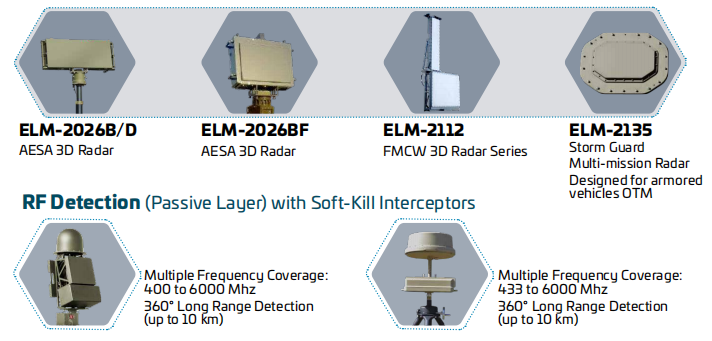
Similar to other radars, the 3D radar is not affected by weather conditions and can operate stably in complex meteorological conditions such as rain, fog, and snow, providing reliable target detection and tracking capabilities. The 3D radar can also scan and process large amounts of data in real-time, quickly identifying and locating drones, providing timely warning information.
2. Electro-Optical (EO) Sensor System
EO sensors capture light reflected by the target through lenses and detectors. This light may come from natural sources or the sensor’s own light source. The captured light is converted into electrical signals, which are then processed to generate images. If the sensor has multi-spectral capabilities, it captures images across different spectral ranges and performs composite analysis.
The system uses image processing algorithms to analyze the features of targets in the images, enabling the identification and classification of drones. High-resolution imaging and multi-spectral analysis ensure effective identification and classification of drones under various environmental and lighting conditions, providing precise target information to the system.
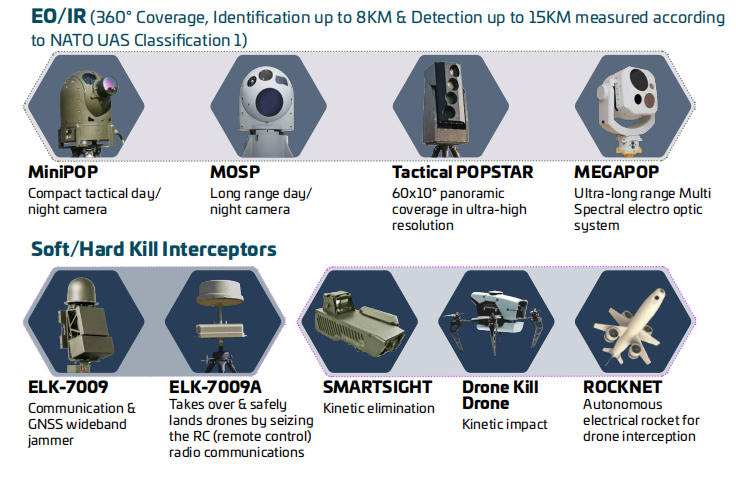
3. Jamming System
The latest version of Drone Guard integrates a Communication Intelligence (COMINT) system, allowing it to detect and classify drones more accurately by analyzing and verifying their communication protocols. This system can effectively counter single drones or drone swarms and is suitable for various civilian and military scenarios.
The jamming system first detects and identifies the control and navigation signals of the target drone. By analyzing the signal characteristics, the system determines the optimal jamming strategy, including frequency, power, and jamming mode. Then, the system emits high-power jamming signals to cover or suppress the drone’s communication and navigation signals, disrupting its normal operation and preventing enemy drones from conducting reconnaissance, intelligence gathering, or attacks.
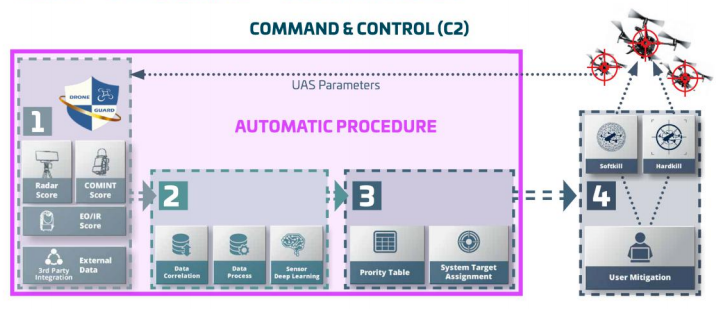
Drone Guard not only detects and classifies drones but can also take measures to disrupt or take over drone control, protecting sensitive facilities, crowded places, and high-value targets from drone threats.
As you know, the RF power amplifiers play the critical role in advanced counter-drone systems like the Drone Guard developed by Israel Aerospace Industries (IAI) and similar systems. These systems require highly reliable and efficient RF power amplifiers to ensure effective detection, identification, and neutralization of drone threats. Based on the technical requirements of such systems, We, Acura Microwave, offer wide range of power amplifiers,and we list following RF power amplifiers as several sample:
Application of ACURAMW‘s RF Power Amplifier Models in Counter-Drone (Jamming) Systems
1. Frequency Range: 0.9-6.0 GHz SSPA
Output Power at Psat: 40 Watts
Gain: 50 dB
Efficiency: >40%
Technology: GaN
Key Features: Wide bandwidth, high power density, and excellent thermal management, making it ideal for high-power jamming applications in counter-drone systems.
2. Frequency Range: 0.3-6 GHz SSPA
Output Power: 120 Watts
Gain: 40 dB
Technology: GaN
Key Features: High power output, broad frequency coverage, and robust performance, suitable for both communication disruption and radar systems.
3. Frequency Range: 2-18 GHz SSPA
Output Power: 25 Watts
Technology: GaN
Key Features: High gain and power efficiency cover the wide frequency range, making it versatile for multiple functions within a counter-drone system.
The more power amplifier models, pls. see and select our power amplifier's page: https://acuramw.com/power-amplifier-module

Key Technical Considerations for Choosing RF Power Amplifiers in Counter-Drone Systems
- Frequency Range: Counter-drone systems typically operate across a wide frequency range to effectively detect and disrupt various drone communication and control signals. Amplifiers with a broad frequency range from DC GHz to 6.0 GHz are ideal.
- Output Power: High output power is essential for effective jamming and disruption of drone signals. Amplifiers with output power in the range of 30-100 Watts are recommended.
- Efficiency: High efficiency is crucial for maintaining system performance and reliability, especially in field operations where power resources may be limited.
- Technology: Gallium Nitride (GaN) is preferred due to its high power density, efficiency, and thermal management capabilities.
Conclusion
The integration of advanced RF power amplifiers is vital for the success of counter-drone systems like the Drone Guard. By selecting amplifiers with the appropriate frequency range, output power, efficiency, and advanced technology, we can ensure these systems effectively neutralize drone threats and protect sensitive facilities.

Drone Guard not only detects and classifies drones but can also take measures to disrupt or take over drone control, protecting sensitive facilities, crowded places, and high-value targets from drone threats.
This is just serveal models we could offer on the counter-drone syshttpstem, pls. contact me freely if you interested to know more, leave your message or visit our power amplifer homepage:https://sspa.acuramw.com/
For more information on these RF power amplifiers and their applications in counter-drone systems, feel free to connect with us on [email protected].

